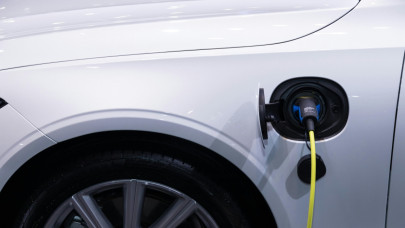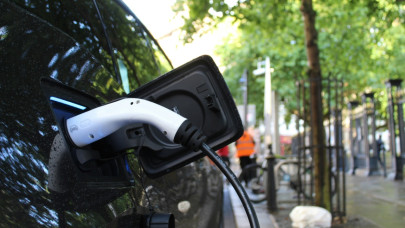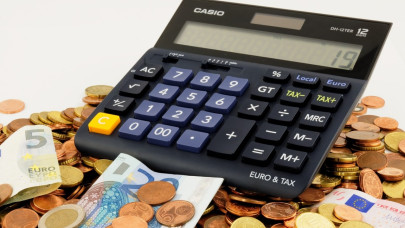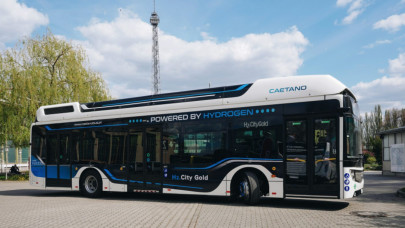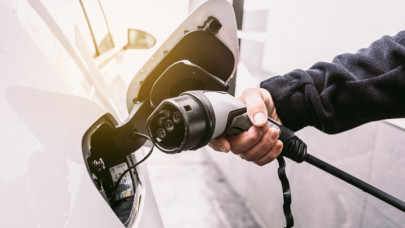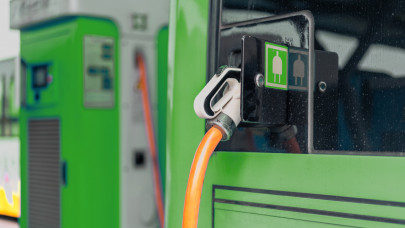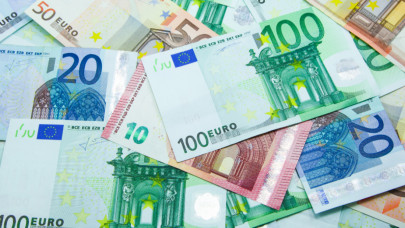Mobility |
14 March, 2025 at 7:03 PM
The European Investment Bank (EIB) will advise the Romanian municipality of Ploiești on green transport projects as part of a Europe-wide push to make urban life healthier for people and the environment.
Mobility |
5 November, 2024 at 7:36 AM
Europe needs to spend €39 billion in public money every year to maintain the continent's competitiveness and ensure that green transport tech is made in Europe.
Finance |
15 October, 2024 at 8:09 PM
The Board of Directors of the European Investment Bank (EIB) approved a total of €5.8 billion of fresh financing for projects ranging from clean energy in Poland.
Mobility |
23 September, 2024 at 10:29 PM
The Lille Metropolitan area (Métropole européenne de Lille) has been awarded a green loan of €245 million by the European Investment Bank (EIB) to fund its public transport network and cycling paths.
Mobility |
19 September, 2023 at 9:20 AM
A pilot hydrogen-powered bus has been tested in the past week through the streets of Kaunas and Vilnius, in Lithuania, according to ceenergynews.com.
Mobility |
30 May, 2023 at 2:00 PM
DSV Road, the third largest freight transport company in Romania, has appointed Mihai Teodorescu, the Country's General Manager of Road, as Sustainability Ambassador, aiming at the development of the Green Transport division. By the end of the year, the company estimates a doubling of the demand for green transport solutions in Romania compared to 2022.
Mobility |
13 April, 2023 at 12:25 PM
The EVconnect electric car charging network will exceed the threshold of 500 stations by the end of the year, and by 2025 the network will include at least 3,000 electric car charging stations. Last year, 166,244 charging sessions were registered on the EVconnect network, totaling 2.37 Gwh, which represents a reduction in the CO2 footprint of 1,989 tonnes.
Mobility |
7 April, 2023 at 9:13 AM
Romania reached 27,590 electric vehicles after as many electric cars were registered last year as in the last 10 years combined. Regarding the charging infrastructure, at the end of February, there were 3,389 public chargers in Romania.
Mobility |
3 April, 2023 at 10:36 AM
Bucharest City Hall buys 7 electric minibusses for RON 10.25 million (€2 million). The purpose of the purchase is to ensure an accessible, efficient, and ecological public passenger transport service and to improve the conditions for the use of non-motorized modes of transport in the administrative area of the established partnership, to reduce CO2 equivalent emissions from transport.
Finance |
28 March, 2023 at 6:00 PM
More than €1.1 billion in finance to be mobilised in sustainable projects, supported by €150 million in InvestEU guarantees. Under the InvestEU programme, the European Bank for Reconstruction and Development (EBRD) and European Commission work together to help various EU countries in reaching their full green potential. New investments to boost green and sustainable projects in the municipal, transport, and energy sectors. Funds to benefit Bulgaria, Croatia, Czechia, Estonia, Greece, Hungary, Latvia, Lithuania, Poland, Romania, Slovakia, and Slovenia
Mobility |
23 March, 2023 at 5:57 PM
Electric vehicles are expected to reach 55% of total global vehicle sales by 2030, but lack of collaboration could impact adoption and decarbonization goals, according to a study from EY and Eurelectric. The study underscores the need for a collaborative and coordinated response from eMobility ecosystem players in pursuit of decarbonization goals, with utilities, in particular, playing a pivotal role.

